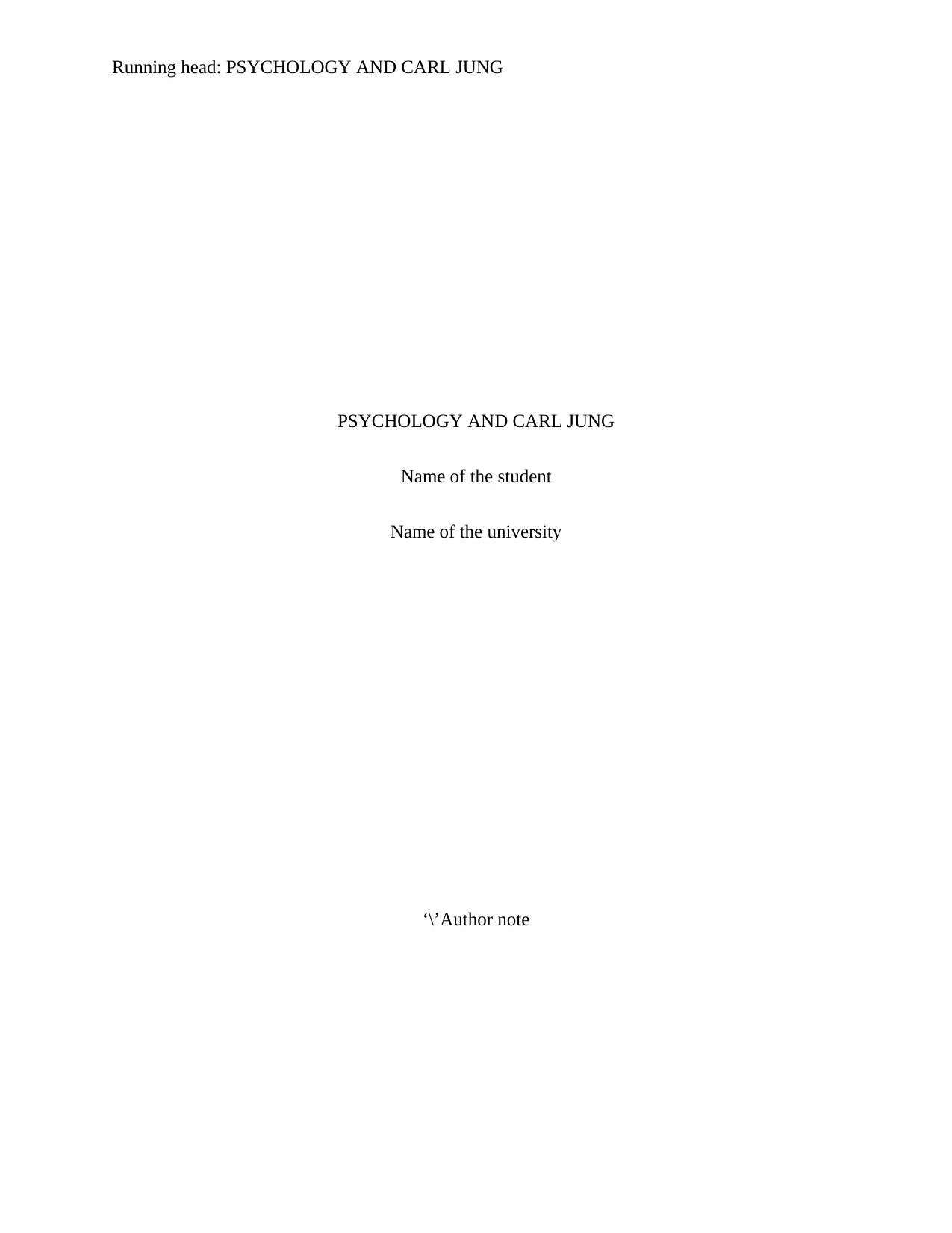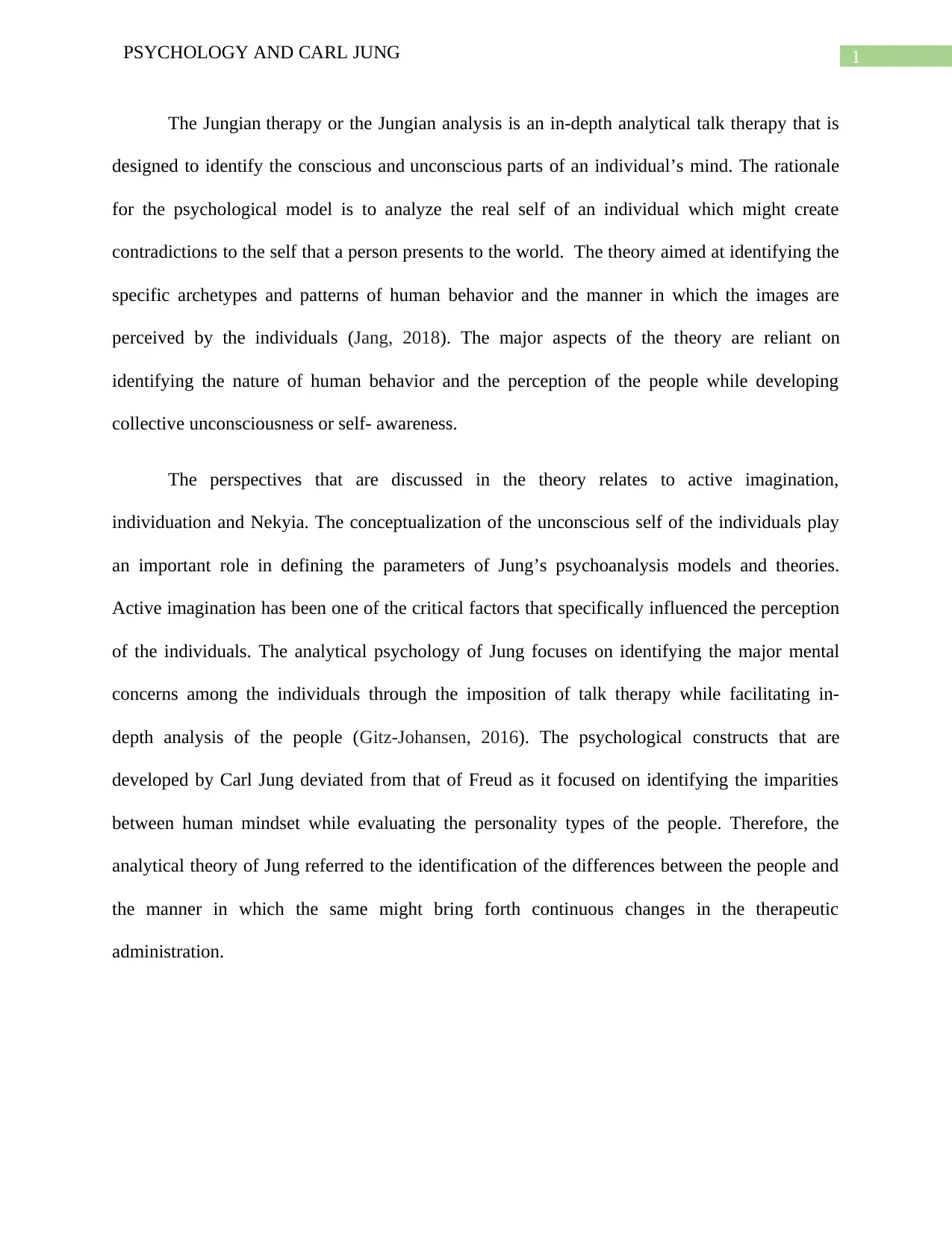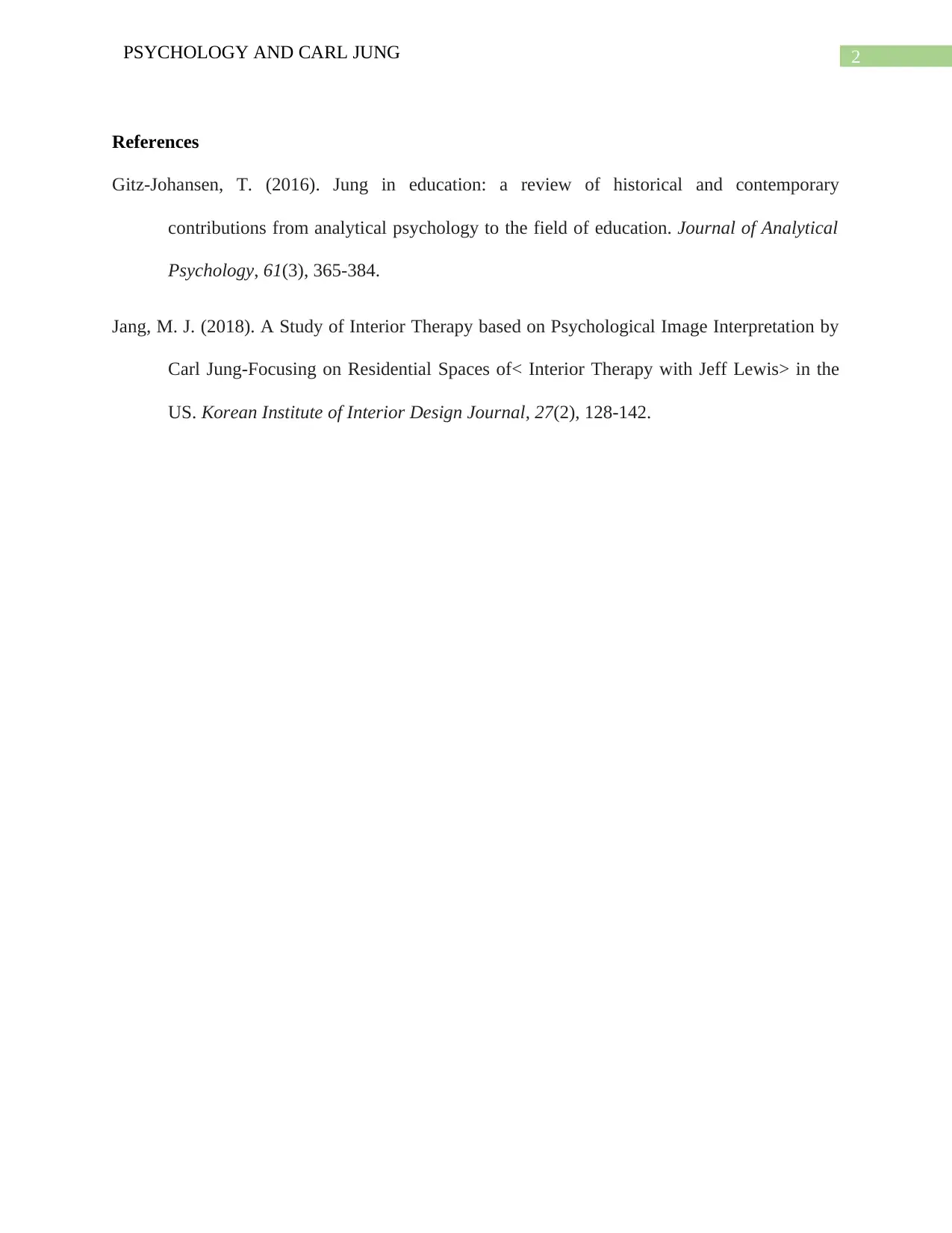A Deep Dive into Carl Jung's Psychological Theories
VerifiedAdded on 2022/08/20
|3
|408
|359
Essay
AI Summary
This essay delves into the core tenets of Carl Jung's psychological theories, examining concepts such as the collective unconscious, active imagination, and individuation. It explores how Jung's analytical psychology differs from Freud's, focusing on the individual's self-awareness and the interpretation of archetypes. The essay highlights the importance of talk therapy in identifying and addressing mental concerns, referencing key aspects like the role of the unconscious self and the impact of these theories on understanding human behavior. The essay references the work of Gitz-Johansen (2016) and Jang (2018) to provide a well-rounded analysis of Jungian psychology, its methods, and its implications for understanding the human mind and its processes.
1 out of 3










![[object Object]](/_next/static/media/star-bottom.7253800d.svg)